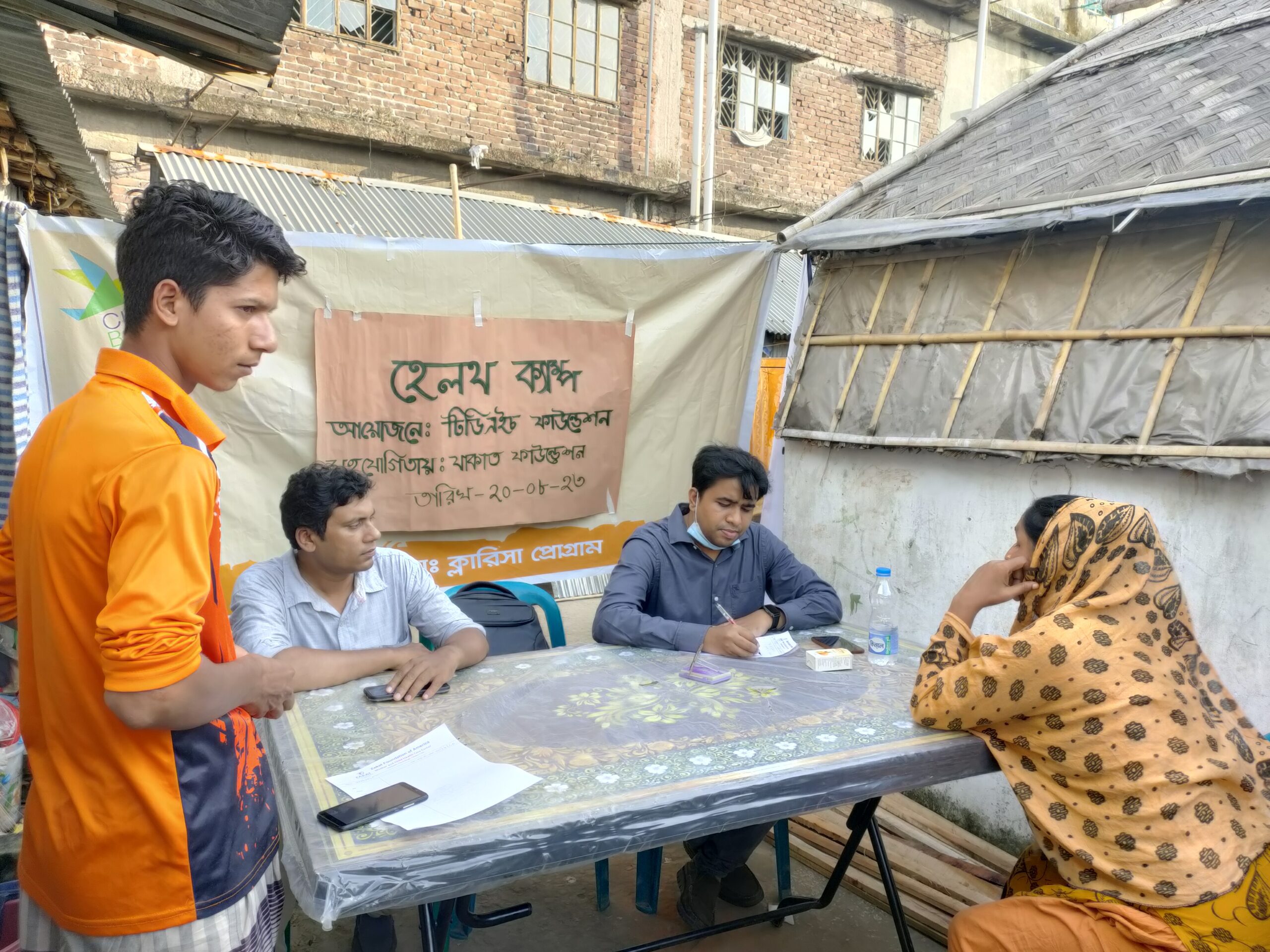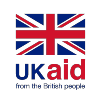The CLARISSA Social Protection intervention’s objective is to support people in building their individual, household, and group capacities. Our hypothesis is that this increase in capacities will lead to a corresponding decrease in deprivation and community-identified social issues that negatively affect well-being. To do this, two unique and innovative approaches – universal and unconditional cash transfers and Needs-Based Community Mobilizing (NBCO) – have been applied in the Gojmohol area of Dhaka, Bangladesh.
Providing intensive needs-based support to the participants, 19 community mobilizers (CM) are working collaboratively with the community at individual, familial, and group levels to identify needs, mobilize existing and available resources to attend to those needs and grow agency and capacity in the process.
Alongside building rapport with the community participants and listening to their stories, and identifying the individual and family-level needs, the CMs visited each household in the intervention area and conducted household surveys to understand the socio-demographic characteristics of the community. Later, the CMs collected information from the households on a bi-monthly basis using a mobile application named CLARISSA CASH+ App. The preliminary findings from this monitoring illustrates that illness remains a common shock for the North Gojmohol community people. Moreover, the micro-narratives documented by the CMs in their field observation and reflection also demonstrated the same scenario. Due to chronic and sudden illness, people lose their income opportunities, and these individuals are more likely to be involved in the vicious circle of an interest-based loan system. In addition, a chronic illness-affected person becomes a burden for a family and the affected person often lives with depression and anxiety because of their inability to work and depending on others for support.

Apart from this, the CMs’ observations shows that the people in this community used to buy medicine from the local pharmacy without consulting any registered doctor for their physical illness or sudden sickness (fever, cold, nausea, flu, etc) just depending on the pharmacist’s suggestion. This means that on some occasions, although a person’s symptoms have been treated, they still suffer from an undiagnosed, underlying illness. The CMs explored the reason behind this, and why people depend on the suggestion of the pharmacist rather than consulting a registered doctor. Common obstacles highlighted were financial, both in reaching a registered doctor and lack of information of low-cost treatment facilities and hospitals, as well as the patients’ belief in the local pharmacist.
In addition, there is also an issue of interest: people are less motivated to consult with a registered doctor rather than seek straightforward and nearby options. The other factor is government hospitals which have low-priced treatment facilities that are far away from the Gojmohol neighbourhood.
Parallel to the surveys and conversations with the community, the CMs conducted a service mapping at the Gojmohol neighbourhood. This exercise identified an organization (Zakat Foundation of America) which is working to support the health of the vulnerable community with other interventions. The SP team met with them to understand their intervention modality and design. Afterwards, the team shared CMs’ observation and the research findings in terms of health needs and unsafe health-seeking behaviour of the Gojmohol community people. They also requested how the Zakat Foundation of America and the CLARISSA SP team can work collectively to create accessibility of health support for the well-being of the people in need. The two groups agreed to work collaboratively to facilitate health camps for marginalized people in the neighbourhood who cannot afford government and private health services. We requested ZFA join us to facilitate a health camp in the Gojmohol community, with the first health camp organized on December 18, 2022, where approximately 100 participants received consultation and medication support. Community people came to the health camp spontaneously, took consultation support from the registered doctor for only 10 taka (£0.07) as a registration fee, and got medicine from them as needed. Only when medical tests were needed to identify the key reason for chronic illness were patients recommended to attend a registered diagnostics centre.
After the first health camp, the CMs gathered reflections from the community and wanted to understand their expectations about the health camp services. CMs got a positive reflection from participants, with one service recipient expressing:
“I have economic barriers and have uneasiness to go to the government and private renowned hospital and doctor’s chamber. I don’t know how to make an appointment to get a consultation with a prominent doctor. I have many physical illnesses, and because of this, I cannot work properly. I am happy getting the health camp support inside my neighbourhood. I expect you will continue this camp thinking about our sufferings.”

Accordingly, the SP team met with the focal point of the Zakat Foundation of America which is leading the health camp project. The focal point stated that they did 3 health camps per month in various slum community areas of Dhaka. The SP team requested ZFA arrange a monthly health camp for the Gojmohol community people. Despite some initial misgivings, the ZFA management recognized the community’s need, and alongside continuing support from the CMs, agreed to continue the monthly health camp in Gojmohol. Consequently, 10 health camps have been facilitated with the assistance of the Zakat Foundation of America for the benefit of the Gojmohol community people. From every health camp, approximately 100 participants receive consultation and medication support. A community participant shared her feelings:
“I was suffering from back pain for a long time, but after receiving consultation and medication support from the heath camp, I am feeling better now. I met with the doctor three times. It is a great help for me, I felt helpless before about where I would go to take the treatment and how much I must pay, like this.”
In terms of community engagement with the health camp facilitation, the SP team gradually took the leadership of logistics arrangement, community mobilization and coordination alongside the Zakat Foundation of Americas. Currently, the SP adult group members are playing the role of CM for the monthly health camp arrangement and the CMs are providing the mentoring support to the group members. The expectation is beyond the CLARISSA SP team’s direct support, the community will be empowered and take the leadership role and arrange collective community actions for the well-being of the community’s overall development irrespective of age, sex, or economic condition.
